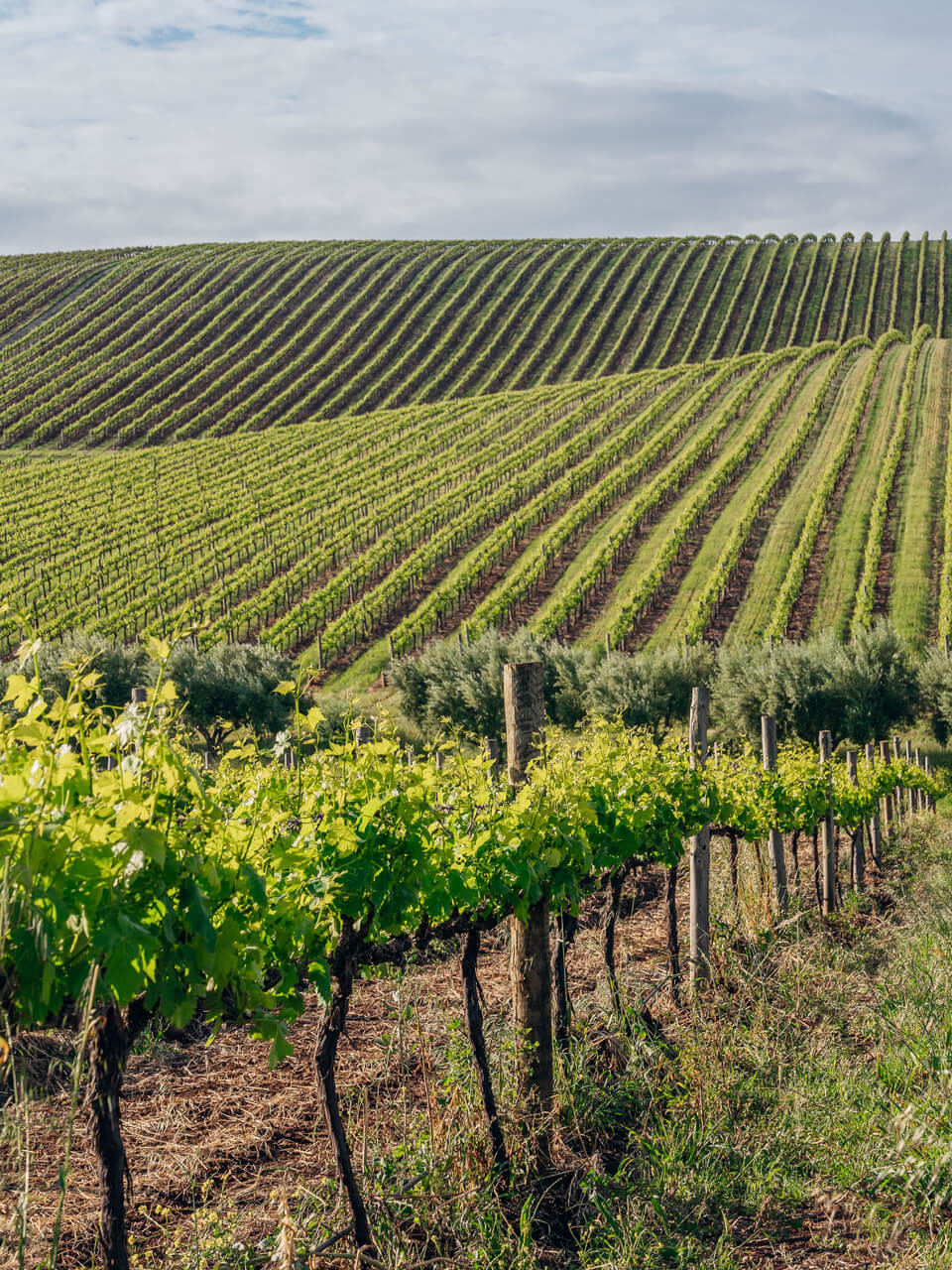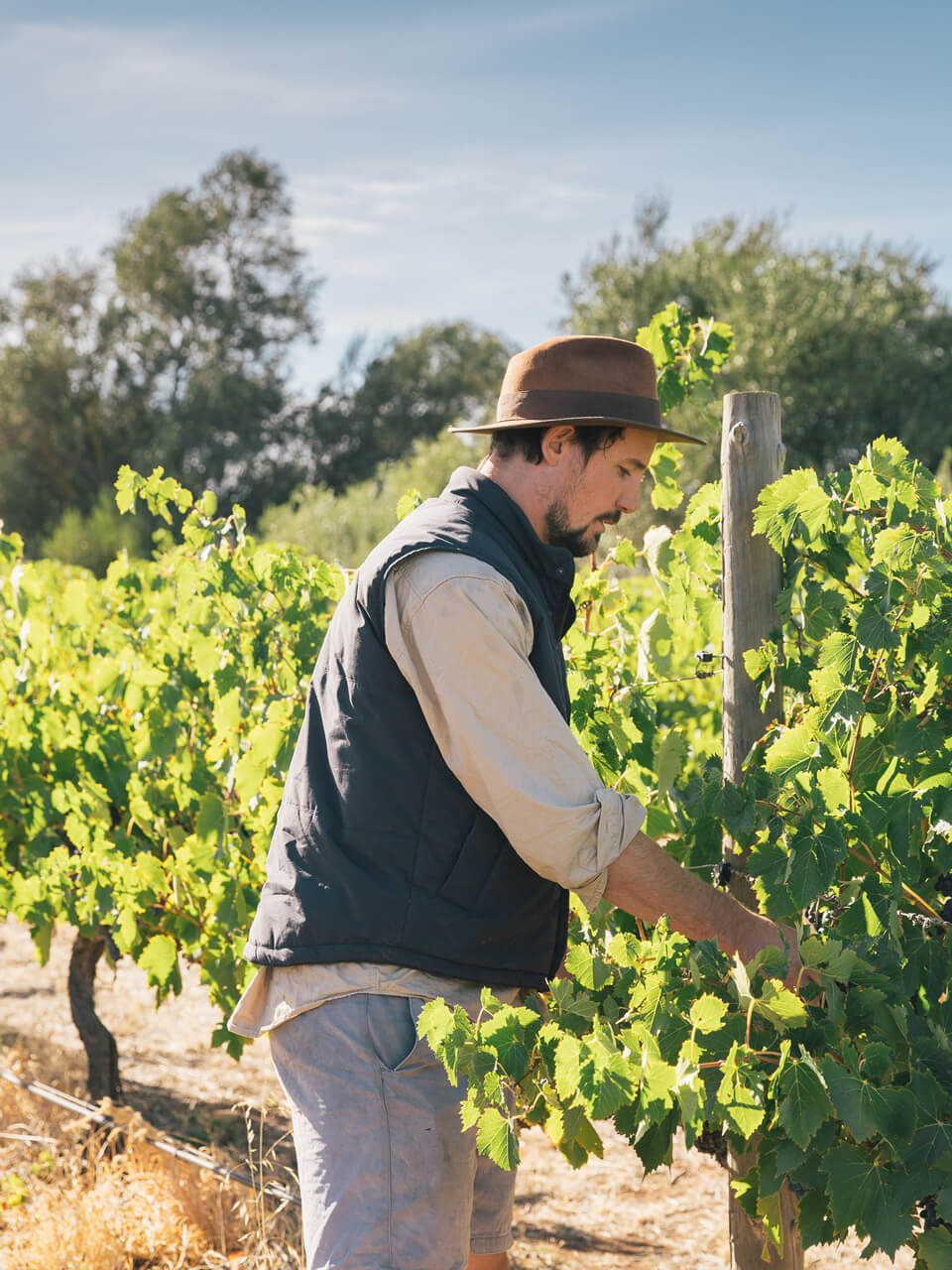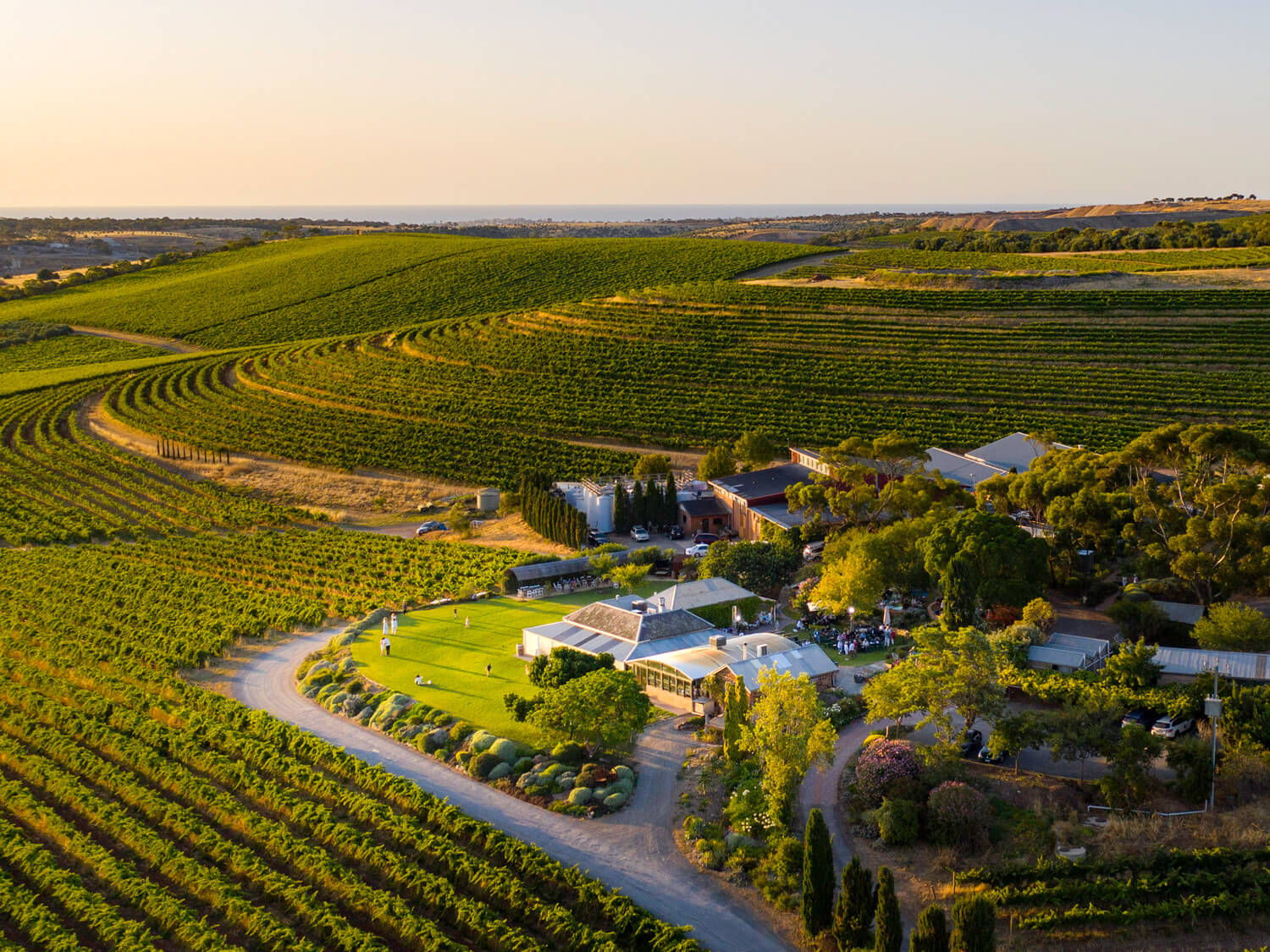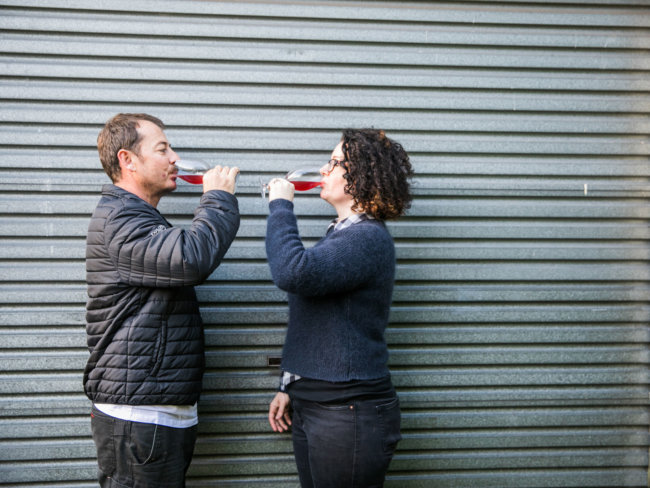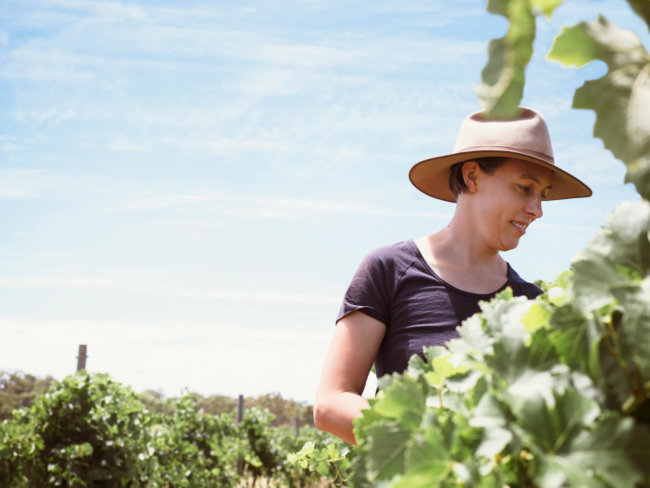Coriole has firmly etched itself into McLaren Vale consciousness, producing intense but serenely balanced wines from the region’s most prolific varieties – shiraz, cabernet sauvignon, grenache – but they have long been an innovator, too. Leading the charge with sangiovese in the 1980s, Coriole now make a raft of wines from heat-tolerant Mediterranean varieties – fiano, montepulciano, nero d’avola, piquepoul, for example – leaning on mid-weight styles that score high for drinkability and food friendliness. Today, joining his brother, Peter, and father, Mark, in the business, Duncan Lloyd has taken the winemaking reins, with “creative control” over the range.
Coriole was founded by Hugh and Molly Lloyd in 1967. The Chaffey’s road site had existing shiraz vines that were planted in 1919 and a stone farmhouse built in 1860, but the Lloyd’s substantially expanded the vineyards, which are planted to terra rossa soils over limestone. It was their son, Mark, that pushed into alternative varieties, planting sangiovese in 1985 – with fiano following in 2001 – with the Tuscan star becoming as emblematic to Coriole as shiraz. Today, Coriole works with both classic French varieties and less-familiar Mediterranean ones, both from their own vines and sourced from trusted growers.
Duncan Lloyd grew up amongst the vines of the family vineyard, which has instilled in him a deep passion for both winegrowing and their home site. “I love what I do as I get to work on the property I grew up on and was immersed in from a young age. There is an amazing feeling of working with the same fruit each year and slowly tailoring our viticulture and winemaking decisions as we see the successes and failures from previous decisions.”
Studying winemaking at the University Adelaide University, Lloyd set out to broaden his horizons after graduating in 2008. With a vintage at Margaret River’s Moss Wood in his final year, he then set off for Europe, working in Germany, Italy and France from ’09 to ’11, including stints at Tuscan estate Monteverro and the Southern Rhône’s esteemed Vieux Télégraphe.
A winemaking stint at Logan Wines in New South Wales’ Central Ranges followed, keeping Lloyd busy between 2012 and ’16, before circling back to the home vineyard in ’17 to take the winemaking helm, as well as launching his Dune label in partnership with his brother. Today, while Lloyd has great freedom, his approach is both consultative and respectful of history.
“I have extensive creative control over the wines we produce. I work closely with my father and brother to direct wine style and quality. As a 50-year-old business, we do have some house-style markers, but we are a very agile winery and produce more experimental batches than what gets to the consumer. My approach is to think broadly on wine style and then use our greatest tools, being variety and vineyard sites, to achieve this.”
These experimental batches are part of the raft of individual parcels of wine Lloyd makes in any given year, giving him the freedom to both release small bottlings and also to add complexity to varietal bottlings of mainstay offerings, like shiraz and cabernet sauvignon.
“I am looking to make wines with full flavour, which is naturally easy to do in McLaren Vale. The challenge is to pull off the throttle and bring in the framework of the wine, so it isn’t simple or one dimensional. By producing around 100 unique batches each year there are always plenty of options to play with come time for blending. It’s amazing how a little shiraz off sand can add fragrance and lift to the savoury and structural shiraz off clay-based soils.”
In the winery, Lloyd is always tinkering, pushing the whites in a more textural direction overall, but pushing even further with fiano, where he now makes his ‘Rubato’ with time on skins and fermentation in barrel, while with reds he is dabbling with co-fermenting varieties, an inspiration he has taken from his time at Vieux Télégraphe.
“The wine styles I am making are about capturing varietal fruit character with good definition of tannin and structure… wine is about food, and the balance of fruit, savoury, acid and tannin in a wine is so important. Modern day Australian wines are great at capturing freshness and primary characters – it’s about having enough complexity to keep these wines interesting. Styles are ever evolving, and I love being part of the history as we can look back at over 50 years of wines produced from our vineyards, as well as making plans for the next 50.”

